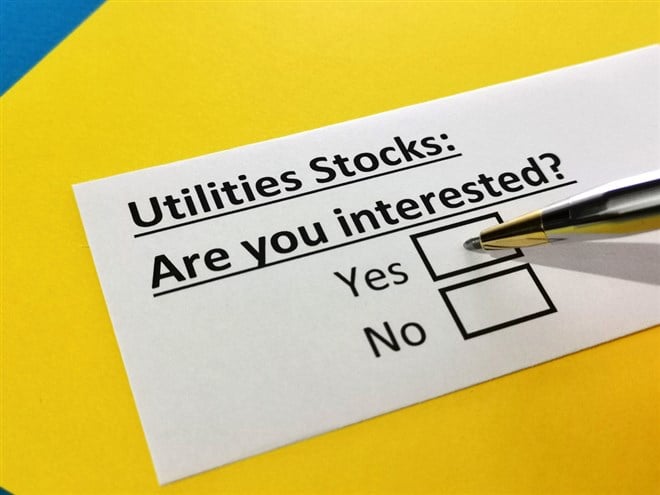
What happens when markets go into panic mode? Investors turn to asset classes or sectors they believe are likely to either pay a dividend or that have a low correlation to equity markets.
On March 15, utilities, as tracked by the Utilities Select Sector SPDR Fund (NYSEARCA: XLU), advanced 1.36% in volume which was 92% heavier than normal.
That was the best performance among the 11 S&P sectors in the session. Utilities are also the best performers over the past five sessions. Those gains occurred as markets were rattled by banks in the U.S. and Europe.
The sector’s top four components rose in the March 15 session. Those stocks and their daily percent changes were:
When it comes to the sector internals, American Electric Power and Xcel Energy Inc (NASDAQ: XEL) were among the day's top performers, posting gains of 2.6% and 2.2%, respectively.
Here are some lesser-known utilities that have stood out from the pack recently. Both are very small companies, meaning it may be riskier to trade.
Genie Energy
Small-cap Genie Energy Ltd. (NYSE: GNE) was the utility with the best gains, advancing 4.15% in the session in heavier-than-average turnover.
Never heard of Genie? That’s not a surprise, given that the stock only has a market cap of $244.1 million. The Newark, New Jersey company provides electricity, natural gas, and solar power to residential and small business customers in the U.S. and Europe. Despite a 23% drop immediately after reporting earnings on March 13, the stock is up 50.51% on a one-year basis.
Many small companies got slammed on Monday as investors fretted about their exposure to banks unable to give depositors their money.
However, in the earnings call, Genie CEO Michael Stein offered reassurances, saying, “We tend to put our deposits with even larger financial institutions than those and the ones that are a little bit more run of the mill as opposed to more niche kinds of players. And our money is in very safe triple-pay-rate kinds of instruments. But yes, of course, we're constantly reviewing.”
As a group, utilities are known as dividend payers. Even Genie has a yield of 3%.
Via Renewables
Via Renewables Inc. (NASDAQ: VIA) has a yield of 14.8%, the highest in the sector. This is a tiny Houston-based company whose market cap is just $78.2 million.
The company, formerly known as Spark Energy, is an independent retail energy services company providing electricity and natural gas to residential and commercial customers in 19 states.
If your eyes are popping because of the yield, take a minute to consider: In many cases, a stock’s yield is high because shares have dropped. Via Renewables’ dividend per share is $0.73. The share price is down 33.74% on a one-year basis, which explains that yield.
Use extra caution whenever you see a stock with a very small market cap, as well as a too-good-to-be-true dividend yield.
What’s Next For Utilities?
According to a utility-industry analysis by consulting firm Deloitte, five main trends are likely to affect utilities in 2023.
- Utilities increasingly plan to roll out the next wave of advanced metering infrastructure.
- Environmental, social, and governance (ESG) reporting continues to gain momentum.
- Battery storage deployments set to accelerate despite supply chain snags.
- Power and utility companies see opportunities to reap value from clean hydrogen.
- Utilities are likely to sharpen focus on preparing for electric vehicle growth.
While it may seem like utilities are a sleepy, slow-growing corner of the market, they’re clearly evolving to address and incorporate new technologies.
Utilities, especially the less volatile larger companies, can be reliable additions to a portfolio, as they typically have dependable revenue streams and dividend payouts. Although they’re not the most exciting sector, they can help mitigate volatility during market downturns.





